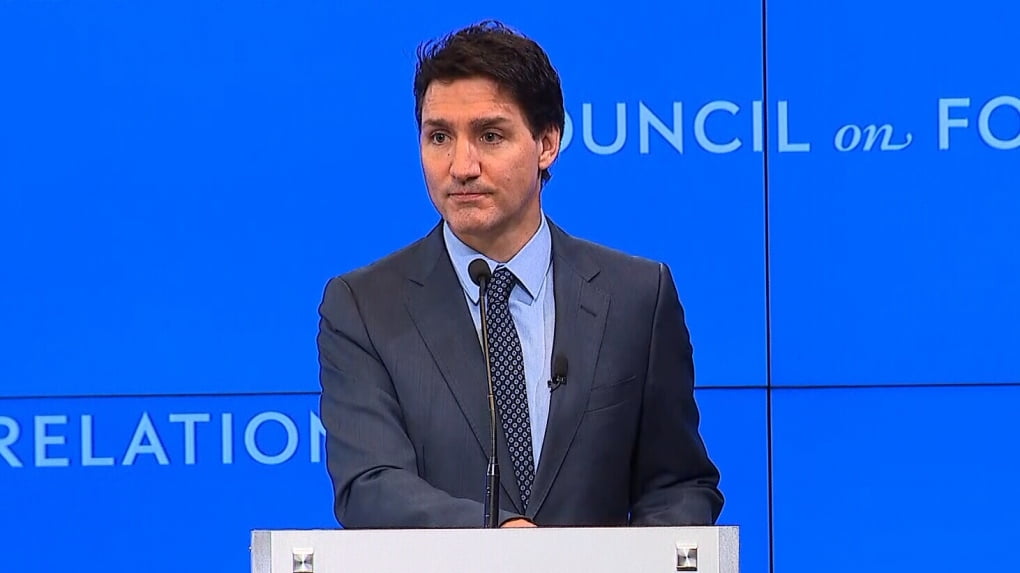On April 28, Prime Minister Justin Trudeau gave a presentation to the Council on Foreign Relations in New York on Canada's role in international politics. One statement in particular attracted a lot of attention, as the prime minister stated that:
"The lithium produced in Canada is going to be more expensive, because we don't use slave labour, because we put forward environmental responsibility [...] because we count on working with, in partnership with indigenous peoples, paying fair living wages, expecting security and safety standards"
However, Canada's mining operations, especially abroad, do not appear to be following in practice these principles touted by the Prime Minister. Indeed, the Justice and Accountability Project (JCAP), a transnational legal clinic based in Toronto, has released a report where it "documents incidents of violence and criminalization associated with Canadian mining companies in Latin America between 2000 and 2015."
Among 28 Canadian mining companies in Latin America, the report found 44 deaths, 30 of which were considered "targeted", and 403 injuries, 363 of which occurred during protests and confrontations. JCAP's research also shows that only 24.2 percent of the deaths and 12.3 percent of the injuries the organization tracks are included in mandatory company reports, and when they are, it is done loosely and using blanket statements.
It also talks about the devastating impacts of these mining operations in Latin America on the environment: destruction of glaciers, contamination of water and rivers, deforestation, erosion, etc.
More recently, in Guatemala, the Canadian company Pan American Silver had to apologize after armed security at one of their mines fired live ammunition at protesters demanding that the community be consulted on new mining projects in the region.
These examples represent only a fraction of the human rights abuses committed by Canadian mining companies abroad, considering that less than one-third of Canadian mining companies, which together represent 75% of the world's mining companies, are in Latin America.
Over in the African country of Eritrea, Vancouver-based Nevsun attracted a lot of attention as a handful of former Bisha mine workers sued them for torture, forced labour, slavery and crimes against humanity.
Workers described being bound and beaten, tied up in the hot sun and left for hours, while earning about $30 US per month. There was no sick leave and they faced retribution that affected their families if they took any leave.
-Bisha mine worker
The sad story of the Bisha mine does not appear to be an isolated case. A 2022 letter to the Senate from the Canadian Network on Corporate Accountability states:
It is imperative that the Government of Canada move quickly to address the widespread reports of forced labour, child labour and other human rights abuses in the global operations of Canadian companies and in Canadian global supply chains.
Even on Canadian soil, the principles of collaboration with indigenous peoples and local communities that the Prime Minister claims to uphold do not reflect the practice of multinational mining companies. This is particularly true of De Beers, which had to plead guilty in 2021 to failing to provide mercury monitoring data for the Victor mine, located upstream from the Attawapiskat First Nation in 2014. The company was pumping water from the mine into a network of streams connected to the Attawapiskat River, resulting in elevated mercury levels in the water and fish populations.
The case of the Horne smelter in Rouyn-Noranda, where Glencore was allowed by the Quebec government to emit 24x more arsenic into the air than the provincial standard, also shows how little concern governments have for health standards around the mining industry. As a direct result of these emissions, the risk of cancer for Rouyn Noranda residents is said to be significantly higher. The director of public health at the time, Horacio Arruda, chose to remove the data concerning the dangers of these excessive emissions from a report intended for residents.
This attempt by the Prime Minister to portray Canadian mining companies as champions of the environment and human rights allows him to present Canadian mining companies as the "green" and "humane" alternative to Chinese companies in order to maintain a competitive advantage over China. Disavowing this industry could be a dangerous game for the Prime Minister, as a huge share of Canada's GDP (5%) comes from the mining sector, which becomes increasingly important to Canada as it tries to position itself as a leader in battery production and the "green transition".
- Ukraine: Russia and NATO both to blame?
- Canada’s Mining Investments Linked to Human Rights Abuses in Philippines
- Canadian Arms Industry Convention Contradicts the Country’s Peaceful Image
- How Canadian Arms Exports are Fueling Conflicts and Endangering Civilians
- Trudeau Disregards Clear Evidence of Mining Giants’ Abuse of Local Communities
- National strikes force Canadian mine closure in Panama
- Are Canadian policies really helping the Ukrainian people?
- “It affects everything in the area”
- Canadian Government supports human rights abuses in Peru
- Protesters Disrupt World’s Largest Mining Convention in Toronto


